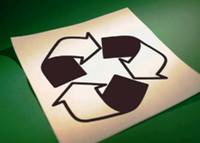Next Council Meeting
 The Official Web Site of the State of South Carolina
The Official Web Site of the State of South Carolina
Lexington County Administrative offices will be closed on Wednesday, January 1st in observance of the New Year holiday.
Lexington County administrative offices are open Monday through Friday 8 AM to 5 PM
**Important** Please Click Here to participate in 2024 Citizen Engagement Survey

Not all products marked with the recycling symbol or that make claims such as "environmentally friendly," "eco-safe," "safe for the environment," or "natural" are made with recycled content or can be recycled in your community.
When shopping, look for labels indicating the item contains recycled content and know the basic definitions:
Recycled-content products: Made from materials that have been recovered or diverted from the waste stream. These include products made from used, reconditioned and remanufactured products and components. Post-consumer content: Indicates that materials used to make a product were recovered from the waste stream after consumer use. Example: Office paper that has been recycled and converted into cardboard boxes or newsprint. Pre-consumer content: Refers to excess material generated during manufacturing, not recycled by consumers. Example: Print overruns, over issue publications and obsolete inventories. Recyclable: Indicates that these can be recycled and used in the form of raw materials to make new products. These products do not necessarily contain recycled materials and only benefit the process if you recycle them after use. Careful, even though it is labeled recyclable, you can only recycle it if it is collected for recycling in your county.
Buying recycled is easier than you think. Most retailers carry recycled-content products at competitive prices. The list of recycled-content products is seemingly endless. Some examples of products made with recycled materials:
Home and Office
Paper products - cereal, cake mix and cracker boxes, facial tissues, toilet paper, paper towels, napkins, writing paper, and greeting cards Plastic bags, detergent bottles, and cleaning supplies Copier and printer paper, envelopes Notepads, legal pads, folders and binders Transparencies Toner cartridges (recharged) Bulletin boards Pens, pencils, scissors, and rulers Corrugated cardboard containers, shipping mailers Polystyrene peanuts, air bubble cushioning material Garden hoses, compost bins Mulch and compost Clothing and shoes
Building and Construction Materials
Plastic lumber for landscaping, decks, parking stops, benches, and picnic tables Steel framing for construction Aluminum gutter, down spouts, siding Roofing, wallboard, wallpaper, and flooring Insulation Paint Carpeting, tiles, and mats Playground equipment Automobiles (the average automobile has 44% recycled steel content) Re-refined oil Retreaded tires Used/rebuilt parts
1. Recycling Means Business in South Carolina
More than 520 recycling companies in South Carolina rely on material recycled by residents, businesses, schools, colleges and universities and other organizations.
2. Recycling Creates Jobs
There are more than 22,000 jobs directly attributable to recycling in the state (more than 54,000 direct and indirect jobs overall). The average annual wage for the direct jobs is $40,203 – higher than the South Carolina average.
3. Recycling Makes a Huge Economic Impact
Recycling generates an annual total economic impact of $13 billion, about $2.7 billion in labor income every year and $329 million in yearly state and local taxes. Since 2006, South Carolina has recruited more than $4.5 billion in capital investments in the recycling sector.
4. Recycling Conserves Natural Resources
Reducing, reusing and recycling reduces the amount of raw material (e.g., timber, water, minerals) needed to make new products that we use in our everyday lives. Recycling also prevents pollution associated with the extraction of natural resources.
5. Recycling Saves Energy
Recycling saves energy because it reduces the need to extract and refine natural resources. In addition, it often takes less energy to make a new product from recycled material than raw material even after counting the energy involved in collecting and sorting recyclables.
6. Recycling reduces Waste
The more you recycle the less you throw away. Remember, however, that waste reduction is a better option than recycling and that most effective way to reduce waste is not create it in the first place.
7. Recycling Reduces Litter
As much as 75 percent of litter is material that can be recycled. Recycling this material helps protect the environment and wildlife as well as avoid costs associated with clean-up efforts.
8. Recycling Reduces the Need for More Landfills
Recycling preserves landfill space by diverting valuable material from disposal. In addition, local governments and businesses can save money on avoided disposal costs by reducing waste and recycling.
9. Recycling Turns Waste Into Raw Material
Recycling turns waste into valuable raw material that manufacturers rely on to make recycled-content products. Buying these products maintains the demand for this material and makes recycling work.
10. It's Easy
Whether at home, school, work or on the go, there are many opportunities to recycle. South Carolina has a robust recycling infrastructure with recycling programs in each of the state’s 46 counties. Lexington County has a curbside program, 11 Collection and Recycle Centers, and accepts material for recycling at the Edmond Landfill. To learn more about the recycling opportunities in the state, visit SC dhec and the State's RecycleMoreSC program. Then do your part and recycle more!